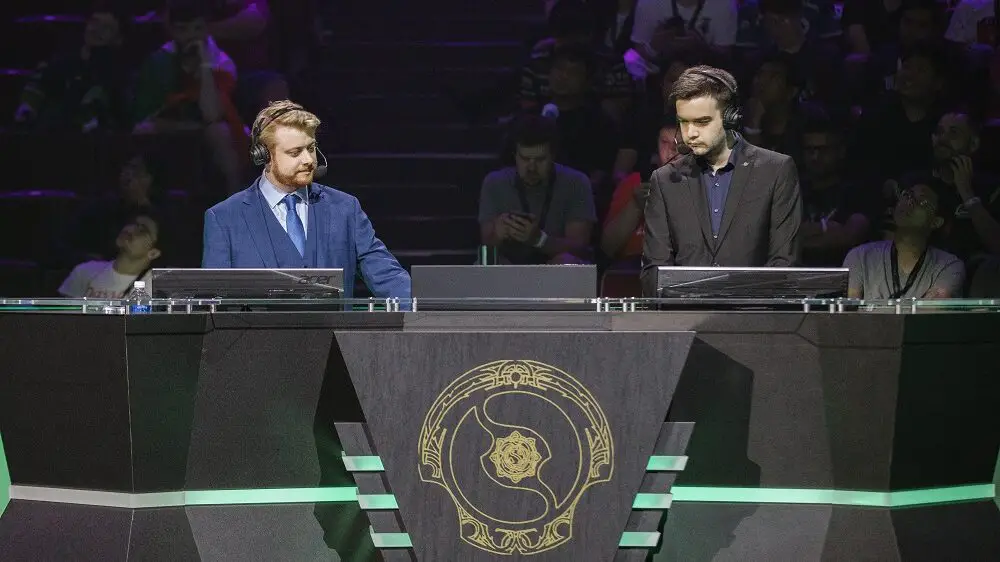How to Get Started as an Esports Commentator
The esports industry has experienced exponential growth over the last decade, and with that growth has come the rise of professional esports commentators. These individuals bring games to life for millions of viewers worldwide, blending technical expertise with engaging storytelling. If you're passionate about gaming and want to become the voice that guides and excites audiences, stepping into the world of esports commentary might be your calling.
Here’s a comprehensive guide to getting started as an esports commentator.
Building Your Knowledge Base
Becoming a successful esports commentator begins with a deep understanding of the games you want to cover. The esports ecosystem includes a variety of genres, such as first-person shooters (FPS), real-time strategy (RTS), and multiplayer online battle arenas (MOBA). Each requires specific knowledge and expertise.
Master Your Chosen Game
Pick one or two games you are passionate about and immerse yourself in them. Learn their mechanics, strategies, and updates. Watch high-level gameplay and analyze what makes professional players excel.
Understand the Meta
The "meta" (most effective tactics available) evolves frequently in esports. Staying current with changes ensures your commentary remains relevant and insightful.
Study Other Commentators
Listen to experienced commentators in your field. Study their pacing, tone, and how they balance technical analysis with storytelling. Take notes on what works well and what doesn't.
Developing Essential Skills
While game knowledge is vital, an esports commentator must possess a diverse set of skills to captivate an audience and deliver valuable insights.
Public Speaking
Confidence and clarity are critical. Practice speaking with varied tones and paces to maintain viewer engagement. Join local speaking clubs or record yourself to identify areas for improvement.
Storytelling
Commentary is as much about the narrative as it is about the gameplay. Create a compelling arc during matches, highlighting key moments, player strategies, and potential outcomes.
Adaptability
Esports events can be unpredictable. From technical issues to sudden comebacks, a great commentator can adapt to any situation seamlessly.
Technical Setup
Familiarize yourself with the equipment you'll use during live streams or broadcasts. This includes microphones, audio mixers, and streaming software. Technical proficiency ensures you can deliver professional-quality commentary.
Building Your Presence
Breaking into the esports industry often starts with establishing yourself as a recognizable voice in the community.
Start Small
Look for amateur tournaments or online events to gain initial experience. Many grassroots esports communities are constantly seeking fresh talent.
Create Content
Build a portfolio by streaming on platforms like Twitch or uploading commentary analyses on YouTube. This not only showcases your skills but also helps you connect with your audience.
Engage on Social Media
Twitter, Discord, and LinkedIn are essential for networking in the esports world. Follow key figures, share insights, and participate in discussions to grow your visibility.
Join Esports Communities
Engage with gaming communities through forums, Discord servers, or Reddit. These platforms are excellent for finding opportunities and receiving constructive feedback.
Landing Professional Opportunities
Transitioning from an aspiring commentator to a professional requires persistence, networking, and leveraging every opportunity.
Network at Events
Attend live tournaments, conventions, and expos. Meeting players, organizers, and other commentators can open doors to gigs and mentorship.
Collaborate with Other Creators
Partnering with streamers, analysts, or other commentators can broaden your reach and improve your skills.
Build a Resume
Highlight your commentary experiences, including amateur events and content creation projects. A solid resume demonstrates your dedication and expertise.
Pitch Yourself
Approach esports organizations, teams, or tournament organizers with a well-prepared pitch. Include examples of your work, highlighting your ability to enhance their broadcasts.
Be Persistent
Breaking into esports commentary is competitive. Rejections are part of the process, but with consistent effort and improvement, opportunities will come.
Additional Tips for Success
Keep Learning: The esports landscape is ever-changing. Stay updated on industry trends, new games, and audience preferences.
Feedback is Key: Actively seek feedback from viewers, peers, and industry professionals to refine your approach.
Invest in Quality: Upgrade your audio and video equipment as you grow to ensure a professional presentation.
Conclusion
Becoming an esports commentator is a rewarding yet challenging journey that demands passion, dedication, and continuous self-improvement. Whether you're calling plays in real-time or providing post-match analysis, your voice has the power to shape how audiences experience the excitement of esports. By mastering your craft and seizing opportunities, you can establish yourself as a respected figure in the industry.
References
- How to Start Streaming on Twitch
- Esports Observer – Industry News and Insights
- LinkedIn Networking for Gamers
- Discord Communities for Esports
- YouTube Gaming Creator Academy
- Esports Careers – Job Board
- Open Broadcaster Software (OBS) for Streaming
- Storytelling Techniques for Broadcasters
- Voice Training Exercises
- Esports Organizations Directory












![[LIVE] Engage2Earn: Veterans Affairs Labor repairs](https://cdn.bulbapp.io/frontend/images/1cbacfad-83d7-45aa-8b66-bde121dd44af/1)







